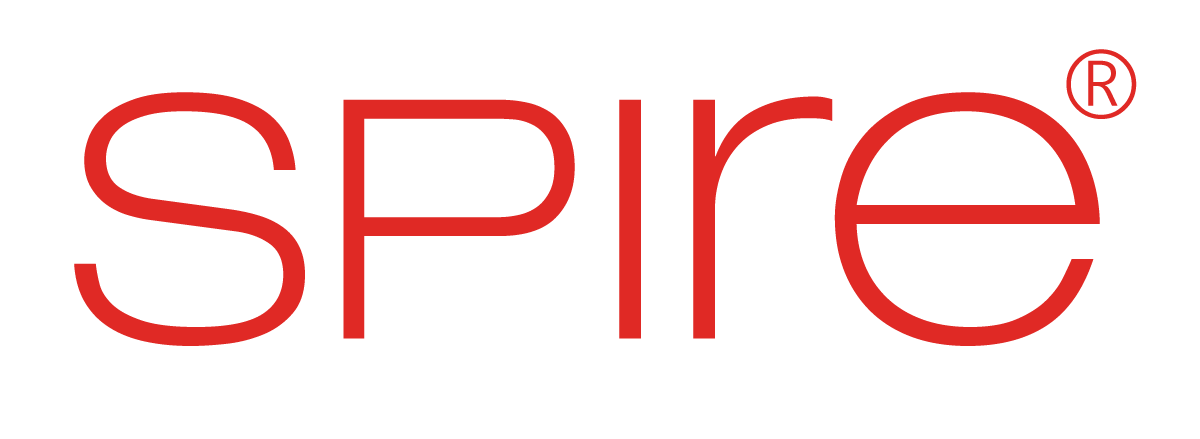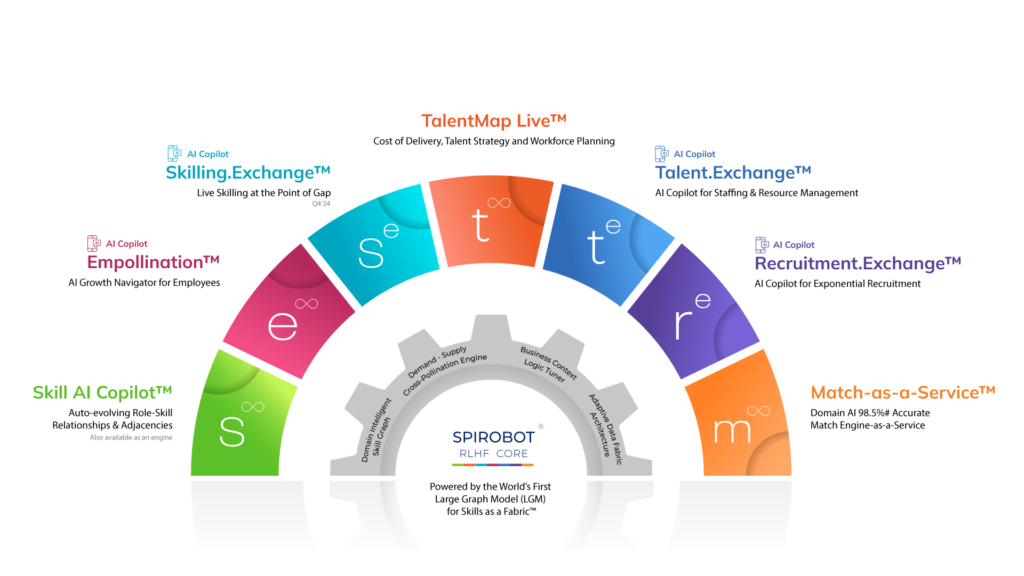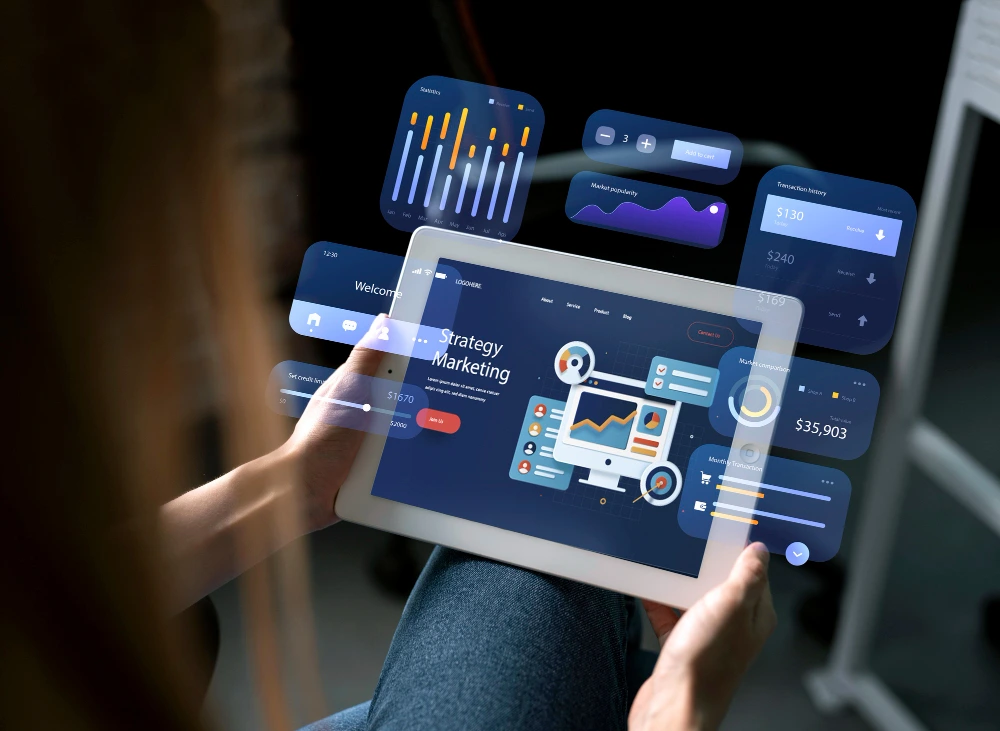The pace of workforce transformation has surpassed traditional learning and development models. Companies can no longer afford to rely solely on scheduled training sessions or static learning management systems. Instead, talent leaders need a solution that can identify skill gaps in real time and deliver hyper-personalized learning at the moment of need. This is where AI agents are proving to be game-changers.
By continuously analyzing workforce performance, AI-driven solutions enable personalized learning paths that empower employees to upskill precisely when and where they need it most. This shift from periodic training to continuous workforce development enhances workforce agility, accelerates talent mobility, and ensures organizations remain competitive.
How AI Agents Identify Skill Gaps in Real-Time
Traditional skills assessment methods such as self-assessments, annual performance reviews, or standardized tests are not sufficient to provide an accurate, timely, or comprehensive understanding of an employee’s capabilities. These methods often rely on subjective evaluations, lag behind industry changes, and fail to capture the dynamic nature of skill acquisition in a modern work environment.
AI agents eliminate these limitations by continuously analyzing employee performance, learning behaviors, and industry trends, enabling real-time skill diagnostics that drive personalized, proactive workforce development strategies.
1. Analyzing Work Performance Data: AI as a Real-Time Skills Auditor
AI agents continuously process vast amounts of structured and unstructured data from various workplace systems to detect skill gaps that directly affect performance. These data sources include the following.
- Project Management Tools (e.g., Asana, Jira, Monday.com): AI evaluates task completion rates, time spent on specific assignments, and the complexity of completed work to infer proficiency levels.
- Collaboration Platforms (e.g., Slack, Microsoft Teams): AI analyzes communication patterns, response times, and engagement in problem-solving discussions to determine knowledge gaps.
- CRM & Sales Platforms (e.g., Salesforce, HubSpot): AI assesses customer interactions, deal closures, and service responses to identify gaps in sales, negotiation, or customer management skills.
- Coding & Development Environments (e.g., GitHub, GitLab): AI reviews commit frequency, bug resolution times, and code quality to pinpoint technical deficiencies.
2. Monitoring Learning Behavior: AI as a Personalized Training Guide
Unlike traditional learning management systems (LMS) that deliver generic training modules, AI agents track and adapt to individual learning behaviors, ensuring employees receive the right content at the right time.
- Engagement Metrics: AI monitors completion rates, time spent on learning modules, and quiz performance to gauge knowledge retention.
- Skill Progression Tracking: AI evaluates whether employees apply newly acquired skills in their daily tasks or struggle with implementing what they’ve learned.
- Drop-Off & Struggle Points: AI flags sections where learners consistently disengage, signaling potential confusion or lack of relevance.
This level of personalization allows AI agents to automatically adjust learning recommendations, ensuring employees focus on the skills they actually need rather than generic corporate training.
3. Processing Industry Trends: AI as a Workforce Strategy Predictor
Beyond internal skill assessments, AI agents integrate external labor market insights to predict future skill gaps and ensure organizations stay ahead of industry disruptions. AI achieves this by:
- Scanning Job Market Trends: AI continuously monitors job postings, industry reports, and workforce analytics to detect emerging skills in demand. For example, a surge in AI-related job postings can signal the need for reskilling in machine learning or data science.
- Benchmarking Against Competitors: AI compares an organization’s workforce capabilities against industry benchmarks, identifying where skill gaps exist in comparison to top-performing competitors.
- Predictive Workforce Analytics: AI forecasts skill obsolescence by tracking technology adoption rates, regulatory changes, and market disruptions, allowing companies to future-proof their workforce.
Closing Skill Gaps with Hyper-Personalized Learning Paths
AI agents are not just diagnostic tools that identify workforce skill gaps; they act as learning architects, building hyper-personalized learning paths that adapt to each employee’s unique needs, performance, and career trajectory. Unlike conventional corporate training, which delivers standardized, static courses, AI-powered learning is dynamic, contextual, and continuously evolving.
This precision-driven approach ensures that employees are not wasting time on irrelevant training but instead receiving targeted, need-based learning that enhances productivity, engagement, and career mobility.
1. Adaptive Learning Recommendations: AI as a Learning Curator
Rather than delivering generic training modules, AI agents curate and customize learning materials based on an individual’s knowledge gaps, learning preferences, and job role requirements. AI-powered adaptive learning operates on three key principles.
- Content Customization: AI dynamically selects learning resources—including articles, videos, courses, podcasts, case studies, and simulations—based on an employee’s existing competencies and skill deficiencies.
- Skill Reinforcement: AI ensures that employees don’t just consume information but retain and apply it by reinforcing learning through quizzes, scenario-based challenges, and microlearning bursts.
- Multi-Modal Learning: AI caters to diverse learning styles (visual, auditory, kinesthetic) by offering interactive content, including gamified modules, discussion-based learning, and AI-driven coaching bots.
For instance, a marketing analyst struggling with data visualization may receive hands-on Power BI tutorials, whereas another needing SEO expertise may get real-time case studies from industry leaders. AI ensures that each learning recommendation is relevant, timely, and aligned with business objectives.
2. Dynamic Skill Development Plans: AI as a Career Accelerator
Traditional learning and development programs often fail because they operate on rigid, pre-defined training pathways that don’t evolve with an employee’s performance or role requirements.
- Building Evolving Learning Paths: AI continuously updates an employee’s skill roadmap based on real-time work performance, changing job roles, and emerging industry needs.
- Aligning Learning with Career Growth: AI proactively suggests skill-building exercises that position employees for promotions, lateral moves, or leadership roles.
Suppose an HR professional seeks to transition from recruitment to talent analytics. In that case, AI will help recommend the learning path with data-driven HR tools, statistical modeling tutorials, and predictive analytics case studies to ensure seamless career mobility.
3. Just-in-Time Learning Delivery: AI as a Real-Time Knowledge Enabler
In traditional learning methods, most of the training happens in isolation from actual work, leading to poor retention and application. AI solves this by delivering “Just-in-Time Learning” (JITL) providing knowledge at the exact moment an employee needs it to complete a task or solve a problem.
- Embedded Learning in Daily Workflows: AI agents integrate with workplace tools (e.g., Slack, Microsoft Teams, Google Workspace) to deliver bite-sized learning materials within the employee’s workflow.
- On-Demand Skill Recommendations: AI detects performance bottlenecks and suggests quick skill-enhancement exercises to overcome challenges.
Why Hyper-Personalized Learning Paths Matter
- 92% of employees say well planned and personalized training enhances engagement.
- Employees retain more knowledge when learning is embedded into their workflow instead of scheduled training).
- Organizations using AI-driven learning experience a 60% faster skills transformation than those relying on traditional models.
By shifting from static training programs to hyper-personalized, on-demand learning, AI agents ensure that employees develop skills in context, apply them effectively, and contribute to business success in real-time. This is the future of workforce development—fluid, intelligent, and strategically aligned with business objectives.
The Business Impact of AI-Driven Workforce Development
The integration of AI agents in workforce intelligence and development strategies delivers measurable benefits.
- Higher Productivity: Research from Deloitte shows that organizations leveraging AI for workforce development experience a significant increase in employee productivity.
- Reduction in Skills Mismatch: AI-powered personalized learning reduces misalignment between employee capabilities and job expectations.
- 2.5x Faster Upskilling: According to McKinsey, organizations using AI-driven learning see skills acquisition accelerate by 2.5 times compared to traditional training methods.
These outcomes make it clear that AI-driven learning is no longer optional, it’s a business imperative.
Spire.AI’s Agent Sigma: Transforming Workforce Agility
As businesses navigate intense talent competition, rapid technological shifts, and evolving skill demands, HR and talent leaders are under unprecedented pressure to develop an agile, future-ready workforce. Traditional learning systems, even those with AI-powered insights, often lack the ability to take autonomous actions, drive real-time skill interventions, and operationalize workforce intelligence at scale.
This is where Agentic AI emerges as a game-changer. Unlike conventional AI systems that analyze data and provide insights, agentic AI goes a step further, it autonomously executes decisions, orchestrates learning pathways, and transforms strategy into action.
At the forefront of this revolution is Spire.AI’s Agent Sigma, a next-generation autonomous AI agent designed to bridge skill gaps in real-time, enhance workforce agility, and accelerate talent mobility all without the need for constant human intervention.
What Is Agentic AI and Why Does It Matter?
Agentic AI refers to AI systems that not only provide intelligence but also act independently to execute decisions and optimize outcomes. These AI agents function as proactive, self-learning entities that continuously adapt to workforce needs, ensuring employees are reskilled and redeployed at the speed of business change.
Traditional AI-based workforce tools merely analyze and recommend learning paths, leaving HR leaders and L&D teams to implement decisions manually. In contrast, Agent Sigma operates autonomously, making workforce transformation seamless, efficient, and self-sustaining.
Agent Sigma: The Future of AI-Driven Workforce Development
Agent Sigma by Spire.AI is built on agentic AI principles, redefining how organizations close skill gaps, mobilize talent, and drive continuous workforce development.
Here’s how Agent Sigma is revolutionizing HR and talent management.
1. Real-Time Skill Identification: AI as an Autonomous Workforce Intelligence Hub
Instead of relying on static skills databases, outdated competency models, or periodic employee assessments, Agent Sigma strategically helps in performing multiple tasks.
- Monitors employee performance across multiple systems (e.g., project management, CRM, collaboration tools or code repositories) to detect emerging skill gaps instantly.
- Analyzes engagement patterns to understand when employees struggle with certain tasks and need immediate support.
- Maps skills dynamically against industry benchmarks and workforce trends, ensuring future-proof talent development.
2. Automated Learning Recommendations & Execution: From Insights to Action
Unlike traditional AI-powered learning systems that stop at making recommendations, Agent Sigma autonomously assigns, sequences, and tracks learning interventions, ensuring employees stay on personalized, adaptive skill development journeys.
- Curates hyper-personalized learning paths for career navigation based on an employee’s skill level, role, and career aspirations.
- Delivers learning in the flow of work by recommending relevant online courses and videos.
- Continuously adapts and refines learning plans based on real-time feedback and performance data.
Imagine a marketing strategist is preparing for an AI-powered customer segmentation initiative but lacks experience with predictive analytics, Agent Sigma automatically recommends a combination of interactive courses and online videos, ensuring seamless skill development without disrupting productivity.
3. Proactive Talent Mobility & Workforce Agility: AI as a Strategic Enabler
Traditional talent mobility programs often rely on slow, manual career development processes, making it difficult for organizations to quickly redeploy talent or upskill employees for new roles.
- Identifying high-potential employees for leadership roles and recommending tailored upskilling plans.
- Proactively suggesting internal job opportunities based on an employee’s evolving skill set, helping companies retain top talent.
- Facilitating seamless lateral and vertical career moves by autonomously matching employees to internal projects, mentorships, or new roles.
For instance, if an HR professional demonstrates growing expertise in workforce analytics, Agent Sigma proactively recommends career mobility pathways into roles such as People Analytics Lead or HR Data Scientist, ensuring internal talent progression rather than external hiring.
The Impact of Agent Sigma: A Workforce Transformation Engine
Organizations leveraging Agent Sigma experience unprecedented workforce agility, efficiency, and talent optimization.
- 3X Faster Upskilling – AI-driven automation accelerates skill development cycles, reducing training lag.
- 50% Increase in Internal Talent Mobility – Employees move into high-value roles faster, reducing hiring costs.
- 50% Reduction in Time-to-Competency – Employees become job-ready in half the time compared to traditional training.
- 100% Real-Time Adaptability – Continuous learning adjustments ensure employees are always equipped for evolving roles.
Why Agent Sigma Is the Future of Workforce Strategy
- For HR Leaders: From manual skill tracking to autonomous workforce intelligence, Agent Sigma eliminates administrative burden and enables strategic workforce planning at scale.
- For CHROs: From reactive talent mobility to AI-driven agility, Agent Sigma ensures talent is optimized, retained, and reskilled in real time.
- For Business Leaders: From skill gaps to continuous innovation, Agent Sigma directly aligns workforce development with business outcomes, improving agility and competitive advantage.
The workforce of the future isn’t just about learning it’s about continuous, AI-driven workforce transformation. With Agent Sigma, Spire.AI has built the foundation for an autonomous, self-optimizing talent ecosystem. The future is not just AI-powered; it is AI-executed.
A Call to Action for Talent Leaders
AI-powered workforce development is not the future, it is the present. Organizations that fail to embrace AI-driven personalized learning paths risk falling behind in talent readiness and business competitiveness.
To remain ahead, HR and talent leaders must ask themselves:
- Are we leveraging AI to identify skill gaps in real time?
- Is our learning strategy agile enough to close skill gaps as they emerge?
- How are we ensuring continuous workforce development without disrupting productivity?
AI agents like Spire.AI’s Agent Sigma provide a clear path forward, enabling organizations to turn workforce challenges into competitive advantages. The next step is action—because the future of learning is already here.






